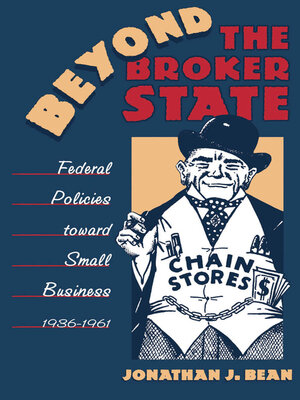Beyond the Broker State
ebook ∣ Federal Policies Toward Small Business, 1936-1961 · The Luther H. Hodges Jr. and Luther H. Hodges Sr. Series on Business, Entrepreneurship, and Public Policy
By Jonathan J. Bean

Sign up to save your library
With an OverDrive account, you can save your favorite libraries for at-a-glance information about availability. Find out more about OverDrive accounts.
Find this title in Libby, the library reading app by OverDrive.



Search for a digital library with this title
Title found at these libraries:
| Library Name | Distance |
|---|---|
| Loading... |
Thomas Jefferson and Abraham Lincoln both considered small business the backbone of American democracy and free enterprise. In Beyond the Broker State, Jonathan Bean considers the impact of this ideology on American politics from the Great Depression to the creation of the Small Business Administration during the Eisenhower administration. Bean's analysis of public policy toward small business during this period challenges the long-accepted definition of politics as the interplay of organized interest groups, mediated by a 'broker-state' government. Specifically, he highlights the unorganized nature of the small business community and the ideological appeal that small business held for key members of Congress. Bean focuses on anti-chain-store legislation beginning in the 1930s and on the establishment of federal small business agencies in the 1940s and 1950s. According to Bean, Congress, inspired by the rhetoric of crisis, often misinterpreted or misrepresented the threat posed to small business from large corporations, and as a result, protective legislation sometimes worked against the interests it was meant to serve. Despite this misguided aid, argues Bean, small business has proved to be a remarkably resilient, if still unorganized, force.







